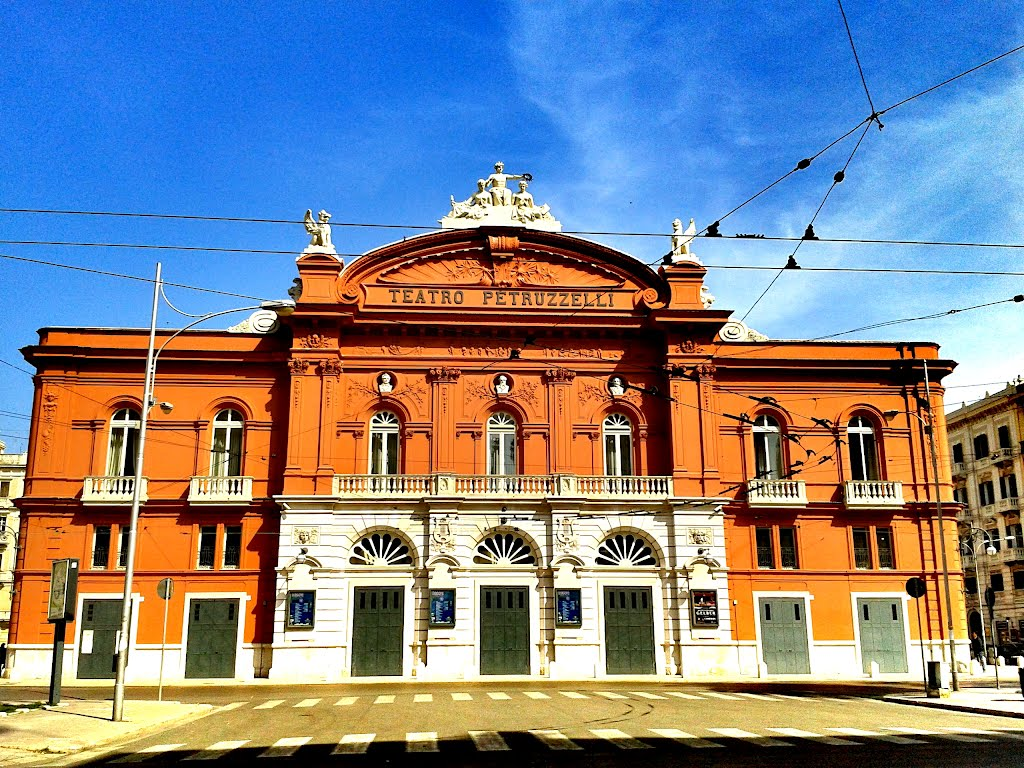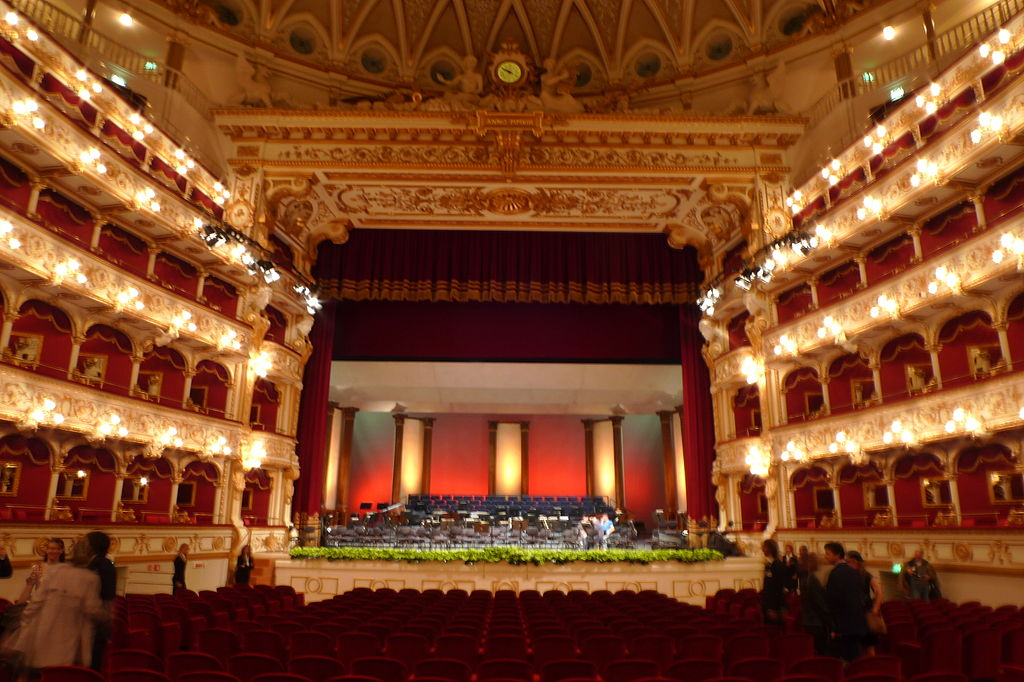
Il Teatro Petruzzelli

Bari, il Teatro Petruzzelli
(foto di Fbio87 di Wikipedia in italiano, CC BY-SA 3.0, https://commons.wikimedia.org/w/index.php?curid=48157085)
Il Petruzzelli è il quarto teatro in Italia per dimensioni e uno dei più belli d’Europa. Quasi ci si stupisce che già agli inizi del XX secolo, una piccola città di provincia come Bari potesse vantare un simile teatro, costruito per andare incontro alla domanda culturale di una popolazione a cui il vecchio politeama comunale, intitolato al musicista Niccolò Piccini, non bastava più.
Il Petruzzelli fu inaugurato nel 1903 con la rappresentazione de Gli Ugonotti di Giacomo Meyerbeer. Il teatro, animato da un vivacissimo cartellone culturale, ha visto alternarsi sul suo palco artisti di fama internazionale. Si caratterizza all’esterno per la sua facciata eclettica che riecheggia forme classicheggianti e si arricchisce di elementi decorativi di stampo liberty e art Nouveau. All’interno il foyer, esuberantemente decorato, vantava sulla sua cupola gli affreschi del pittore pugliese Raffaele Armenise, andati distrutti nel corso del terribile rogo che la notte del 27 ottobre 1991, a conclusione della Norma di Bellini, distrusse il teatro. Solo nel 2009, a seguito di lunghi restauri e annose polemiche, che hanno infuocato la vita politica cittadina, il Petruzzelli è stato nuovamente aperto al pubblico.

Teatro Petruzzelli, interno

